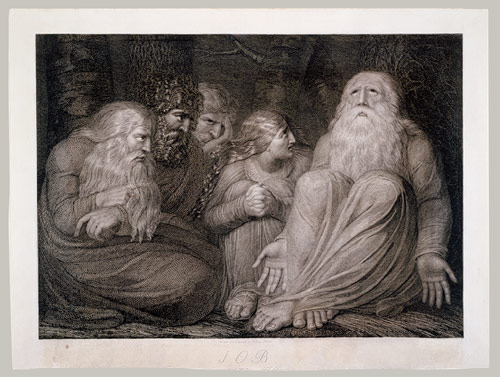
Just this week, as the Christmas holiday approached, a memory was brought back to me from my childhood. When I was little, my mother would sometimes receive snow globes as gifts. At Christmas, she would put the snow globes out, and I would shake them, and look into them. They did not contain the beautiful, complicated scenes and figures you might see in snow globes today. These snow globes of yesteryear were made of plastic, and the scenes inside were very simple, almost crude in workmanship. I would shake them, watching the snow swirl around inside them, and I would wish that I could live in the scene inside the snow globe. I could picture myself playing next to the snowman inside one globe, or living in the little house inside another globe. The scenes were sweet and wintery, and for a few moments, with my child's imagination, I inhabited those scenes.
I wondered why this old memory would come back to me so suddenly. I think I know why now.
We cannot escape the works of darkness that seem to fill our times and events. Every day, we hear and see news items from our own country, and from around the world, that reflect the very worst of the sinful nature of man. We are bombarded with these images and words. Television and the internet have made it possible to know of these events almost at the instant of their happening, like never before in history. We hear and see the weirdest shenanigans of celebrities, politicians and neighbors. Not much can remain hidden any longer.
I also hear communications lately from friends, loved ones, even fellow believers, filled with sadness, anger, depression, discouragement, anxiousness, and worries.
We even begin to look at the Body of Christ, fellow believers, the same way we look at the events of the world. We see the faults, we feel disappointment, and even betrayal, the "let-downs". Our whole eye has become filled with the fruit of the darkness that we see around us. Our mind and emotions fall victim to this world darkness. We become what we look at, what we fill our eyes with. Scripture tells the story of Jacob changing the color of sheep by what he put in front of their eyes, and in their drinking troughs (Gen. 30:37-43).
Our souls and spirits have become sickened because of the dark reports we have been surrounded by, and we don't even realize it. No, contrary to recent stories, it's not the air freshener, or the candle burning in the room that's making us sick, but it's the evening news. Much of our society has "shadenfreude", being entertained by, or getting perverse enjoyment from, others' misfortune and tragedy.
However, while we live in the world, our purpose is not the same as the rest of the world. While, granted, the reported events of this world hopefully bring us to prayer, our eyes should not be filled with the darkness of these things, lest we become like them, and begin to suffer from the same repercussions of that darkness from which the world suffers:
"My eyes bring suffering to my soul because of all the daughters of my city." Lam. 3:51
Jesus said, "The lamp of the body is the eye. If therefore, your eye is good (healthy), your whole body will be full of light. But if your eye is bad (evil, unhealthy), your whole body will be full of darkness. If therefore, the light in you is darkness, how great is that darkness!"
Mt. 6:22-23
Our vision should be like our words (Rom. 4:17): Seeing things not as they are, but seeing things as they are meant to be, calling and seeing those things that be not, as if they already were, processing those dark things internally, as if they are light. How can this be done?
What we "see" is not dependent upon current events. It is dependent upon us.
You may insist that, unlike when we were children, it is not possible to inhabit a snow globe. You may say that we live as adults in the real world. So we do. However, what is to be our reality in this "real" world? This reality is described as part of our calling:
"For you see your calling, brethren...God has chosen the foolish things of the world to put to shame the wise, and God has chosen the weak things of the world, to put to shame the things which are mighty; and the base (lowly) things of the world and the things which are despised, God has chosen, and the things which are not, to bring to nothing the things that are, that no flesh should glory in His presence." 1 Cor. 1:26-29
We are here to bring those dark, proud things that exist to nothing. They shouldn't be becoming part of us, troubling and sickening us.
Jesus taught about the unrelenting darkness of the end of the age. He taught about deception, wars, earthquakes, famine, pestilence, fearful sights on earth and in the heavens, persecution, betrayal, accusation, men's hearts failing from the fear and expectation of what was coming. (Lk. 21:8-26). However, these same events should cause a different expectation in our hearts. Jesus says that these events should be seen by us as the coming of our redemption, causing us to lift up our heads, to look up and see His coming. When we see these things happening, unlike other men, we are to see the kingdom of God drawing near. He says we should see these things as like seeing the budding of the trees, which promises the coming green leaves and fruits (figs) of summer. (Lk. 21:28-31) This should be what we see, and expect. What others are processing as horror and fear, we are processing as coming hope.
Jesus already told us above how to process the surrounding darkness, turning it into light and hope inside of us. The Apostle Paul also told us that we have been delivered from that power of darkness (Col. 1:13). In Phil. 4:4-9, he also said:
"Rejoice in the Lord always. Again I will say, rejoice!...The Lord is at hand. Be anxious for nothing, but in everything, by prayer and supplication, with thanksgiving, let your requests be made known to God; and the peace of God which surpasses all understanding will guard your hearts and minds through Christ Jesus. Finally, brethren, whatever things are true, whatever things are noble, whatever things are just, whatever things are pure, whatever things are lovely, whatever things are of good report, if there is any virtue, and if there is anything praiseworthy-meditate on these things. The things which you learned and received and heard and saw in me, these do, and the God of peace will be with you."
When the Lord brought to my memory the scenes from the snow globes, and reminded me of how I used to desire to inhabit those scenes as a child, I think He was teaching me, in His unique way, what Jesus and Paul were teaching us above. In our spirits, we have the ability, even the power, to see darkness as light. We are commanded to see darkness as light. It is in us and through us, that the kingdom of darkness loses its power, and is transformed into the kingdom of light. It doesn't matter what everyone else reports and perceives, it matters, as sons of God, what we report and perceive. From the impression I have, I don't think Jesus kept His eyes on the workers of the darkness all around Him. He said that He did the works that He saw His Father doing, so His eyes were on His Father. Where are our eyes looking?
Our Father reminds us to look into the snow globes.
"Whatever is True"
https://www.youtube.com/watch?v=u1M_-8dD_sI
"I Lift My Eyes Up (Psalm 121)"
https://www.youtube.com/watch?v=9g4eqKDkDiw




